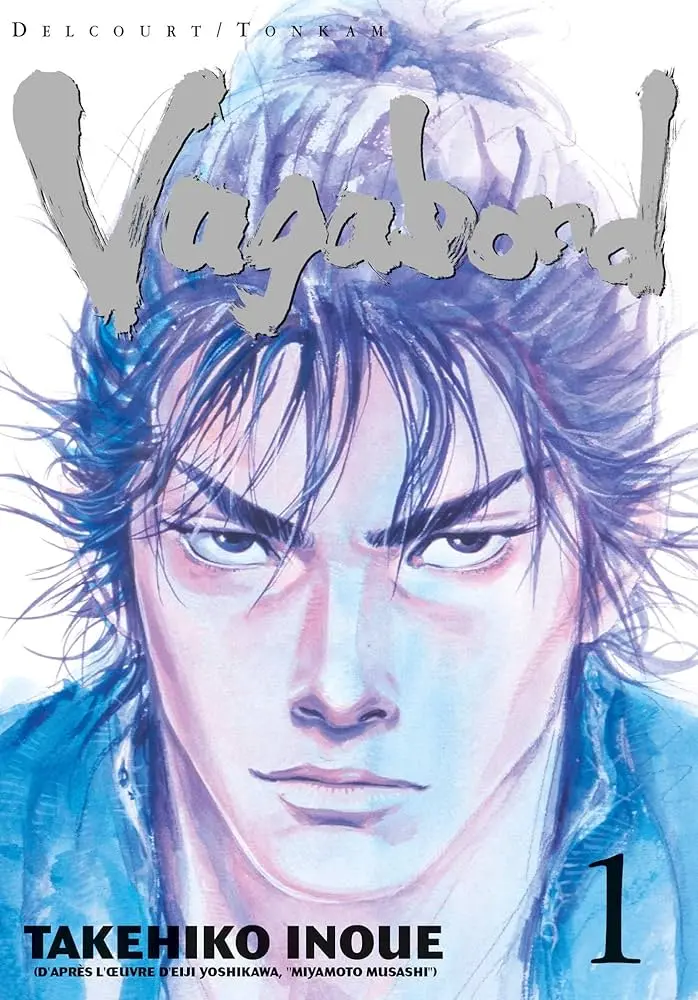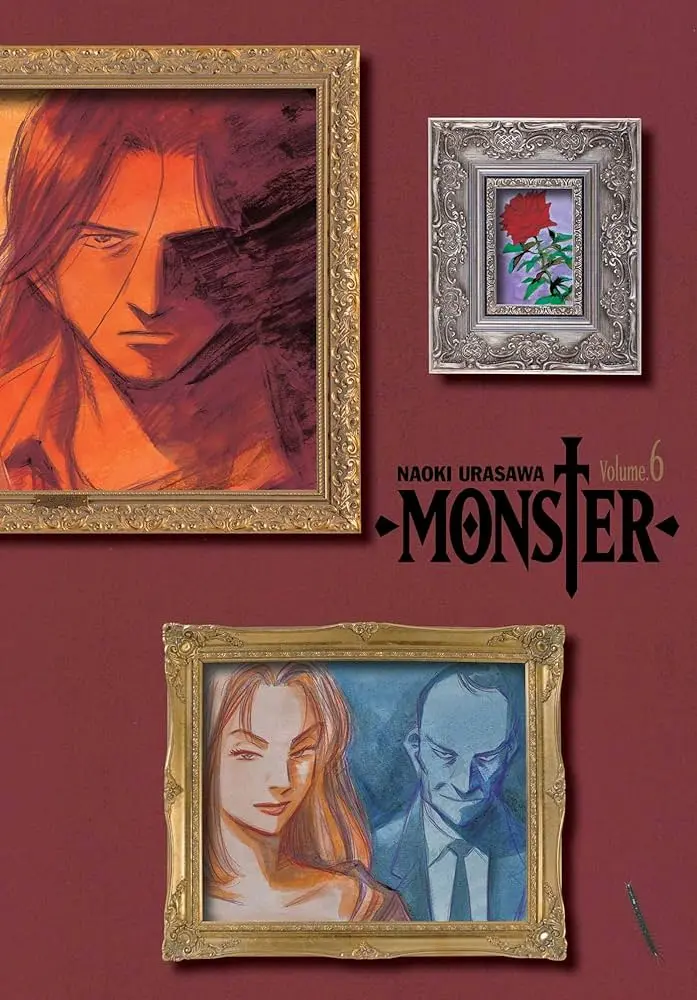A Journey Through Miyamoto Musashi’s Legacy with Vagabond
Strap on your sandals, grab your katana, and prepare to delve into the world of Vagabond, the manga series that reimagines the life of Miyamoto Musashi, one of Japan’s most legendary swordsmen. Created by Takehiko Inoue, Vagabond is a masterful blend of historical fiction and philosophical exploration, bringing to life the tumultuous journey of a man striving for greatness in a world filled with conflict and existential questions.
If you wanted to pick this up for a simple samurai story filled with duels and heroic exploits, Vagabond might surprise you. This is the sort of manga that really dives deep into the psyche of its characters, offering a rich and introspective narrative that examines the very nature of strength, honor, and self-discovery. It’s a sprawling tale that’s both visually stunning and emotionally profound.
The Art: A Symphony of Motion and Stillness
Takehiko Inoue’s artwork in Vagabond is like watching a samurai film unfold frame by frame, but with the added bonus that you can linger on each beautiful panel as long as you like. Each page is a masterpiece, capturing the fluidity of motion and the tranquility of stillness with such finesse that you might find yourself staring at the same page for hours.
Fight scenes? They’re not just chaotic brawls but carefully choreographed ballets of death. You can almost hear the swords clashing and feel the wind from a missed strike. Inoue’s ability to depict motion is so vivid, you might start practicing your own sword swings (just maybe not in public!)
But it’s not all about the action. The quieter moments—characters lost in thought, serene landscapes, or a simple breeze rustling through leaves—are rendered with equal care. Inoue strikes a perfect balance between the fury of battle and the calm of contemplation, creating a rhythm that keeps readers both excited and introspective.
Characters: More Than Just Warriors
Speaking of swinging swords in public – Vagabond isn’t just a collection of sword-wielding maniacs; Inoue really goes deep into psyches of his complex characters. At the center is Miyamoto Musashi, who’s not just hitting people over the head with his sword but also grappling with some serious existential dread. Musashi’s relentless quest to become the ultimate swordsman is as much about mastering his own demons as it is about defeating external foes.
Musashi’s journey is mirrored by a colorful cast of characters. Take Matahachi, for instance, Musashi’s childhood buddy whose life choices are a string of “what not to do” lessons. Matahachi’s escapades make him the lovable screw-up we can’t help but root for, even when he’s bumbling his way through life. His path is a chaotic counterpoint to Musashi’s disciplined quest, offering a rich narrative tapestry.
And then there’s Otsu, whose presence adds layers of emotional complexity. Her relationship with Musashi and Matahachi is a tangled web of longing, loyalty, and unresolved tension. Otsu’s own journey towards self-discovery and strength provides a refreshing counterbalance to the testosterone-fueled sword fights, reminding us that strength comes in many forms.
Themes: The Search for Meaning and Mastery
Underneath all the action brooding stares, Vagabond is a philosophical heavyweight. Central to the story is the theme of self-mastery. Musashi’s relentless pursuit to become the best isn’t just about cutting down foes—it’s about conquering his own fears and doubts. Every duel is a step on his path to understanding himself, and every setback is a lesson in humility and perseverance.
Then there’s the exploration of honor. Musashi’s encounters with various warriors and thinkers challenge him to define what honor truly means. Is it about winning battles, or is it something deeper? These interactions push Musashi—and us—to reconsider our own values and what it means to live with integrity.
The tension between destiny and self-determination is another recurring theme. Musashi’s journey seems predestined, yet every choice he makes carves a unique path. This ongoing dance between fate and free will invites readers to reflect on their own lives, pondering the extent to which we shape our own destinies versus being swept along by the currents of fate.
The Setting: A World in Turmoil
The backdrop of Vagabond is a Japan in flux, a land where samurais roam, and societal norms are constantly shifting. It’s a place where honor and survival are often at odds, and the line between civilization and chaos is razor-thin. Inoue’s depiction of this period is so vivid you can almost smell the battlefield mud and hear the distant clang of a blacksmith’s hammer.
Inoue’s attention to detail is astounding. From the intricately designed armor to the historically accurate settings, every element is meticulously crafted to immerse you in the era. The landscapes, whether desolate or serene, play a critical role in setting the tone and enhancing the narrative.
The societal norms of the time are as much a character in the story as Musashi himself. The rigid class structures, the ever-present threat of conflict, and the strict code of the samurai create a world where every decision is fraught with consequence. This historical authenticity not only grounds the story but also adds layers of complexity to the characters’ struggles.
Reflections: The Enduring Impact of Vagabond
Vagabond isn’t just a story you read to get to the end; it’s a journey you experience (also you can’t get to the end yet, as it’s incomplete, and has been on hiatus for awhile). But that shouldn’t stop you, its exploration of universal themes, coupled with its stunning visual artistry, makes it a work that lingers long after the final completed page is turned.
In the end, Inoue’s ability to blend action with introspection, history with philosophy, creates a narrative that is both compelling and thought-provoking. Vagabond challenges readers to look beyond the surface, to explore the motivations and inner struggles of its characters. It’s a shame it’s incomplete (Inoue wanted felt the weight of pressure to make Vagabond perfect, which is why he stopped, ironically mirroring his own manga’s search for mastery/perfection).
I’ll leave you with this – if you’re a seasoned samurai aficionado or a newcomer to the genre, Vagabond promises to leave a lasting impression for the journey, and is worth checking out.
Subscribe to our newsletter and get two free novels!



